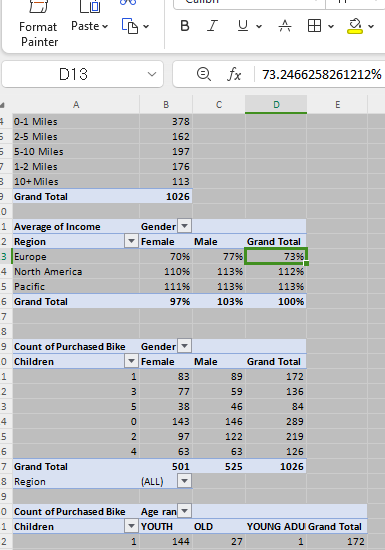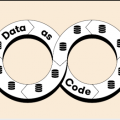- February 21, 2024
- Posted by: SouTech Team
- Category: Others

Introduction
The Significance of Data Analysis
In a world flooded with information, the capacity to derive significant insights from data is a game-changing advantage. This article explores the profound significance of data analysis, emphasizing its role in informed decision-making and strategic planning.
Navigating the Landscape of Data Crunching
Navigating the landscape of data crunching requires a foundational understanding of essential techniques. We’ll embark on a journey through the basics, advanced methods, and practical applications that define the realm of data analysis.
Getting Started: Basics of Data Analysis
Decoding Descriptive Statistics
Before diving into the intricacies of data analysis, it’s essential to grasp descriptive statistics. We’ll decode concepts like mean, median, and standard deviation, laying the groundwork for a deeper understanding of data.
The Visual Power of Data Visualization
Data visualization transforms complex datasets into compelling visuals. We’ll explore the power of charts, graphs, and visual aids in making data accessible and facilitating better comprehension.
Unraveling Patterns with Pivot Tables
Pivot tables are a data analyst’s secret weapon for quick insights. We’ll demystify pivot tables, showcasing how they facilitate efficient data summarization and analysis.
Beyond the Basics: Advanced Statistical Techniques
Inferring Insights with Inferential Statistics
Beyond describing data, inferential statistics infer insights and trends. We’ll introduce the concept, highlighting its applications in making predictions and drawing meaningful conclusions from limited datasets.
Building Relationships through Regression Analysis
Regression analysis uncovers relationships between variables. We’ll explore how this technique is employed to identify patterns and make predictions, providing a powerful tool for data-driven decision-making.
Drawing Conclusive Results with Hypothesis Testing
Hypothesis testing adds a layer of certainty to data analysis. We’ll guide readers through the process, from formulating hypotheses to drawing conclusive results based on statistical evidence.
Preparing for Analysis: Data Cleaning and Quality Assurance
Mastering the Art of Data Cleaning
Clean data is the bedrock of reliable analysis. We’ll delve into the art of data cleaning, offering practical tips and best practices to ensure the data used for analysis is accurate and trustworthy.
Strategies for Handling Missing Data
Missing data poses challenges in analysis. We’ll discuss effective strategies for handling missing data, ensuring that analysts make informed decisions even in the absence of certain data points.
Ensuring Data Quality for Reliable Analysis
Maintaining data quality is crucial for drawing accurate conclusions. We’ll emphasize the importance of data validation, integrity checks, and continuous monitoring to ensure the reliability of data used in analysis.
Predicting Trends: Time Series Analysis
Analyzing Time-Ordered Data
Time series analysis is instrumental in understanding trends over time. We’ll explore how analysts can unravel patterns, identify seasonality, and gain insights from time-ordered data.
Forecasting Future Trends
Forecasting adds a predictive dimension to time series analysis. We’ll discuss methods and models for forecasting future trends, helping businesses anticipate changes and plan accordingly.
Seasonal Decomposition for Enhanced Predictions
Seasonal decomposition refines predictions by isolating recurring patterns. We’ll illustrate how this technique enhances the accuracy of predictions, particularly in scenarios with seasonal variations.
Machine Learning in Action
Understanding the Basics of Machine Learning
Machine learning introduces automation and predictive capabilities. We’ll provide an overview of machine learning basics, showcasing its applications in data analysis and decision-making.
Grouping Data with Clustering
Clustering algorithms identify patterns and group similar data points. We’ll delve into how clustering enhances segmentation and pattern recognition, providing valuable insights for analysts.
Predictive Power of Classification
Classification algorithms predict outcomes based on historical data. We’ll explore how classification is a powerful tool for predictive analysis, guiding professionals in leveraging this capability.
Streamlining Insights: Business Intelligence Tools
Crafting Insightful Dashboards
Business Intelligence (BI) dashboards provide a visual representation of key metrics. We’ll explore how crafting insightful dashboards enhances decision-making by presenting complex data in an easily digestible format.
Real-time Analytics for Timely Decisions
Real-time analytics transforms decision-making by providing up-to-the-minute insights. We’ll discuss the importance of real-time analytics in facilitating timely decisions and responses to dynamic situations.
Tailoring Insights with Custom Reports
Custom reports allow analysts to tailor insights to specific business needs. We’ll guide readers on creating custom reports that address unique challenges, providing actionable information aligned with organizational goals.
Ethical Considerations in Data Crunching
Mitigating Bias and Ensuring Fairness
Business Intelligence (BI) dashboards provide a visual representation of key metrics. We’ll explore how crafting insightful dashboards enhances decision-making by presenting complex data in an easily digestible format.
Real-time Analytics for Timely Decisions
Real-time analytics transforms decision-making by providing up-to-the-minute insights. We’ll discuss the importance of real-time analytics in facilitating timely decisions and responses to dynamic situations.
Tailoring Insights with Custom Reports
Custom reports allow analysts to tailor insights to specific business needs. We’ll guide readers on creating custom reports that address unique challenges, providing actionable information aligned with organizational goals.
Ethical Considerations in Data Crunching
Mitigating Bias and Ensuring Fairness
Data analysis isn’t immune to biases. We’ll explore how analysts can mitigate bias and ensure fairness in their analyses, promoting ethical practices in data-driven decision-making.
Safeguarding Privacy in Sensitive Data Analysis
As analysts handle increasingly sensitive information, safeguarding privacy becomes paramount. We’ll discuss strategies for maintaining data privacy, complying with regulations, and building trust with stakeholders.
Transparent Communication of Findings
Transparency in communicating findings is essential. We’ll guide professionals on presenting data insights transparently and understandably, fostering trust and comprehension among diverse stakeholders.
Sharpening the Saw: Continuous Learning in Data Analysis
Staying Current with Industry Trends
The field of data analysis is dynamic, with continuous advancements. We’ll discuss the importance of staying updated with industry trends, including emerging technologies, methodologies, and best practices. Keeping abreast of the latest developments ensures that analysts remain at the forefront of innovation.
Practical Application through Projects
Theory meets practice in data analysis. Engaging in practical projects enhances mastery by applying learned skills to real-world scenarios. We’ll encourage professionals to seek hands-on experience, contributing to a deeper understanding of the challenges and opportunities within the field.
Cultivating a Growth Mindset in Data Crunching
A growth mindset is foundational for success in data analysis. We’ll explore how adopting a growth mindset empowers professionals to embrace challenges, learn from setbacks, and continuously enhance their data analysis skills. A mindset focused on continuous improvement is key to navigating the evolving landscape of data analysis.
Conclusion
In conclusion, mastering the essentials of data analysis is not just a professional skill; it’s a strategic advantage. From foundational techniques to advanced methods, the journey through data analysis equips professionals with the tools to make informed decisions and uncover valuable insights. The ever-growing demand for data-driven insights makes data analysis an indispensable skill in today’s competitive landscape.
FAQs
- Can data analysis techniques be applied across different industries, or are they industry-specific?
Data analysis techniques are versatile and applicable across various industries. While specific datasets and challenges may vary, the fundamental principles of data analysis remain consistent.
- How can professionals ensure the accuracy of their data analysis results?
Ensuring accuracy involves thorough data cleaning, validation, and verification. Professionals should follow best practices, address missing data effectively, and use reliable data sources for accurate analysis.
- What steps can be taken to address bias in data analysis?
Addressing bias requires awareness, transparency, and a commitment to fairness. Professionals should assess data sources for bias, use diverse datasets, and communicate findings transparently, acknowledging potential biases.
- Is continuous learning necessary for professionals already proficient in data analysis?
Continuous learning is essential for staying abreast of industry trends, emerging technologies, and evolving best practices. Even proficient professionals benefit from ongoing education to remain at the forefront of the field.
- How can professionals balance the need for real-time analytics with data accuracy?
Balancing real-time analytics with data accuracy requires careful consideration. Professionals should prioritize data quality, implement robust validation processes, and leverage technologies that facilitate real-time insights without compromising accuracy.





